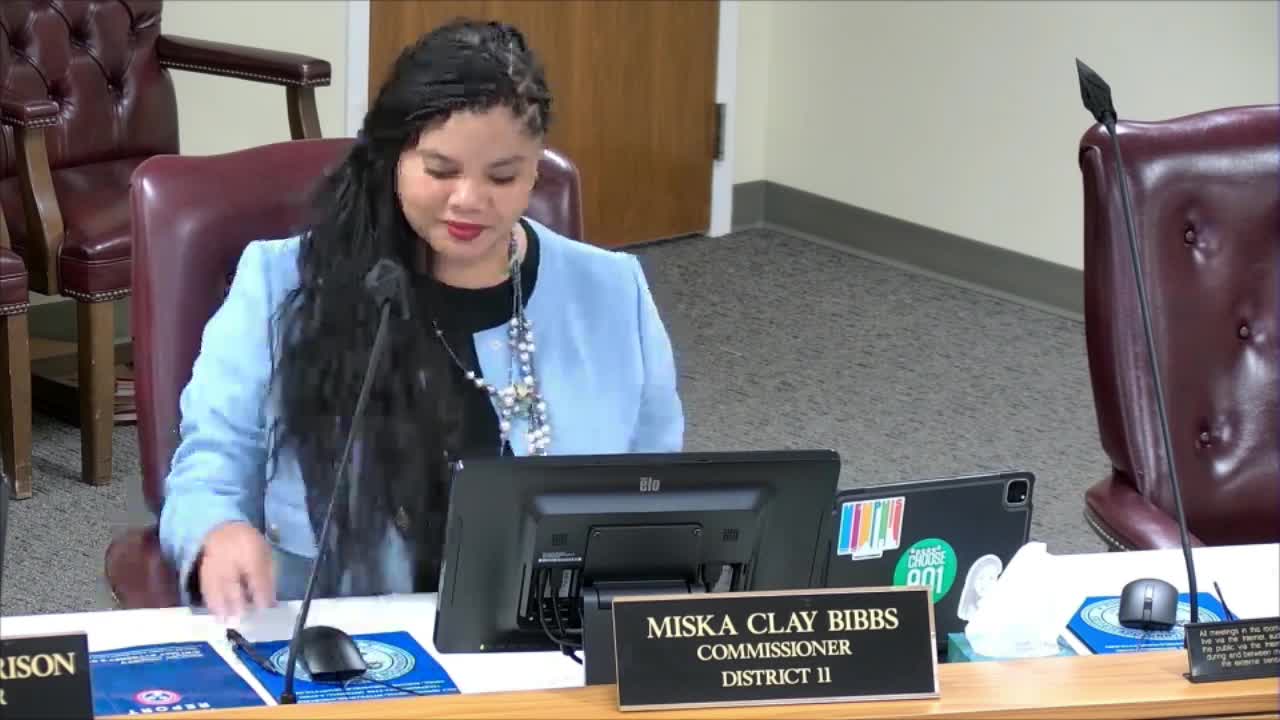Shelby County General Sessions courts seek new staff, tech upgrades and decade-long archiving in FY26 budget presentations
Get AI-powered insights, summaries, and transcripts
Subscribe
Summary
General Sessions leaders told the county budget subcommittee they need more staff, system upgrades and an archival partnership to reduce case backlogs and modernize operations; several recovery and specialty courts requested funding to replace dwindling special revenue.
Tammy Sawyer, General Sessions court clerk, told the Shelby County Budget Subcommittee on March 19 that the General Sessions Court Clerk’s Office is asking the county for staff and technology funding in the Fiscal Year 2026 budget.
Sawyer said the office has 47 employees and 15 temporary staff, with eight vacancies, and that “about 84% of our budget is paying salaries and benefits.” She described recent hiring and backlog reductions and asked for new positions and equipment to continue progress.
The request includes funding for two countywide technology projects and staff increases. Sawyer said the clerk’s office is seeking a share of $71,750 for an upgrade to the Tyler case-management system and roughly $71,000 to begin a county-wide archival digitization effort with the Register of Deeds. The office also proposed 22 additional positions spread across civil and criminal courts and finance to address turnover and audit findings, Sawyer said.
Why it matters: General Sessions handles criminal and civil dockets across Shelby County and serves as a data source for multiple agencies. Court leaders told commissioners staffing and outdated systems are constraining case processing and reporting.
Key details and context
- Workload and staffing: Sawyer said the office has been filling vacancies since January and hiring “2 to 3 new employees every two weeks” but still needs more staff because the operation is paper-heavy and the county’s largest court. She said civil filings turnaround recently improved to about a 4–5 week cycle and garnishment processing to roughly 6–8 weeks, after overtime and extra Saturday shifts helped reduce a backlog.
- Technology and interoperability: Sawyer described two pending system upgrades: e-filing for civil cases and a “pay it” payment platform to accept online and chip payments, plus a Tyler upgrade for criminal-side search and analytics. She said the Tyler work will improve data reporting to state systems, which currently requires substantial manual effort.
- Records archiving: Sawyer said the office stores records across three warehouses and an off-site county archive and proposed a long-term digitization effort starting with loose dockets and bound and mental-health dockets. She told commissioners the Register of Deeds has identified priorities and the clerk’s office will “work with the register of deeds to move forward with this archiving.” Sawyer characterized the archiving as likely a decade-long project.
- Audit and finance controls: Sawyer cited repeated audit findings and asked for strengthened finance staffing to improve controls; she said the office has experienced turnover among financial analysts and accountants and asked that some of the 22 requested positions be placed in finance.
Recovery and specialty courts also presented budget needs during the General Sessions block of the subcommittee meeting and asked the county to pick up positions or costs that previously came from grants or special revenue:
- Drug Court (Judge Lee Wilson): The drug court reported growth (from about 125 participants a year ago to 135) but said a special revenue fund historically paid seven positions and that fund has declined because assessed fines fell. The court asked the county to share operating costs to avoid cutting services; leaders said they were not requesting new positions but asked the county to replace dwindling revenue that currently supports seven civil-service positions.
- Mental Health Court (Judge Sheila Bruce Renfro): Judge Renfro said the county currently provides no direct county funding or positions for mental health court and requested county support to sustain and expand services. She described a recent $2.7 million grant used for services and ARPA support that will phase out and said the court is asking for positions, fringe, supplies and contracts totaling what she called “a big” $800,000 (as stated in the meeting) to continue services and avoid scaling back at a time when roughly a third of the jail population shows signs of mental illness.
- Veterans Court (Jerry Easter, director): The Veterans Court asked for one county-funded peer recovery specialist, which Easter said has a fully burdened cost of $62,193.59. Easter said many treatment and therapy costs remain funded through VA benefits or outside grants and that the requested position is front-line support rather than a request to fund treatment.
- Environmental Court (Judge Dandridge): Judge Dandridge requested $60,839.34 to fund a part-time assistant to support a newly formed Shelby County Environmental Court Foundation that assists indigent and elderly residents with property repairs and code compliance; he also requested a modest pay upgrade for an existing manager-B position to reflect expanded duties.
Quotes from presenters
- “We will be making a request to work with the register of deeds to move forward with this archiving,” Tammy Sawyer said. - “Currently, the county is not funding mental health court at all. No funds whatsoever. No positions whatsoever,” Judge Sheila Bruce Renfro said when describing mental health court’s funding gap.
What commissioners asked and next steps
Commissioners asked for follow-up details and clarifications: Commissioner Wright pressed for written breakdowns of personnel asks and requested follow-up site visits to courthouse offices. Presenters were asked to supply written budgets and pay-grade details for requested positions. No votes were taken; the presentations were for the subcommittee’s review as part of FY26 budget development.
Ending
Presenters left materials with the subcommittee and said they would provide written backup for specific position requests, precise salary grades, and additional cost estimates for the Tyler upgrade and the archiving project ahead of budget decisions later this spring.
